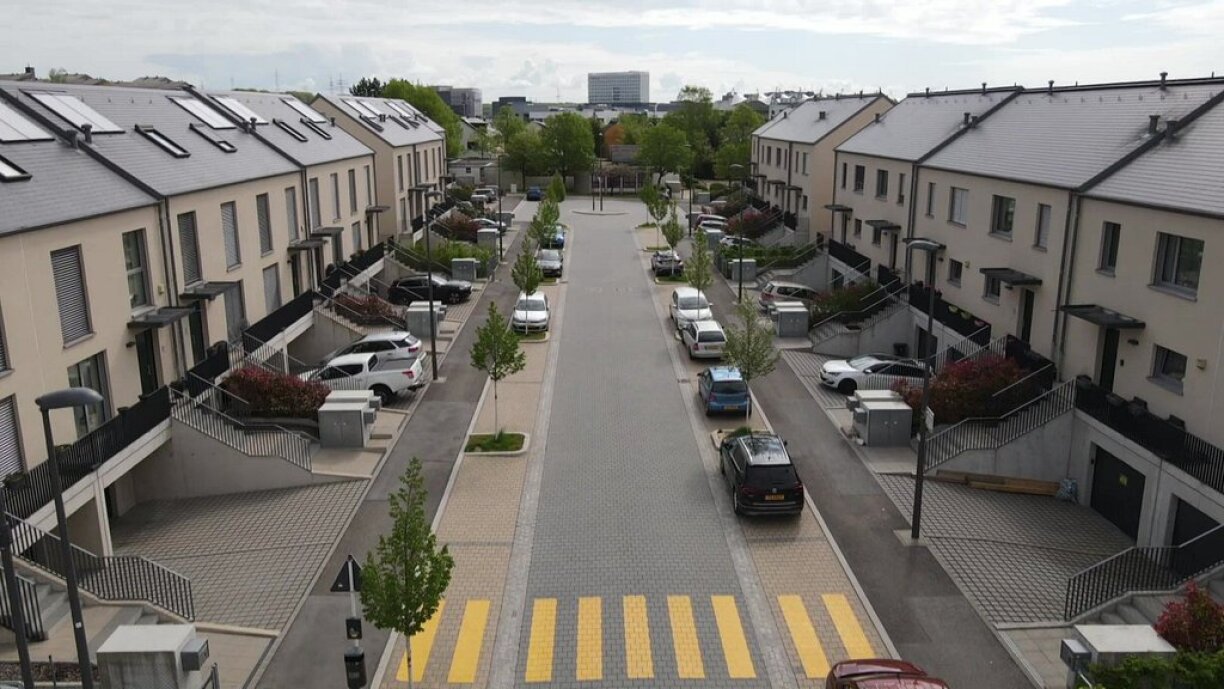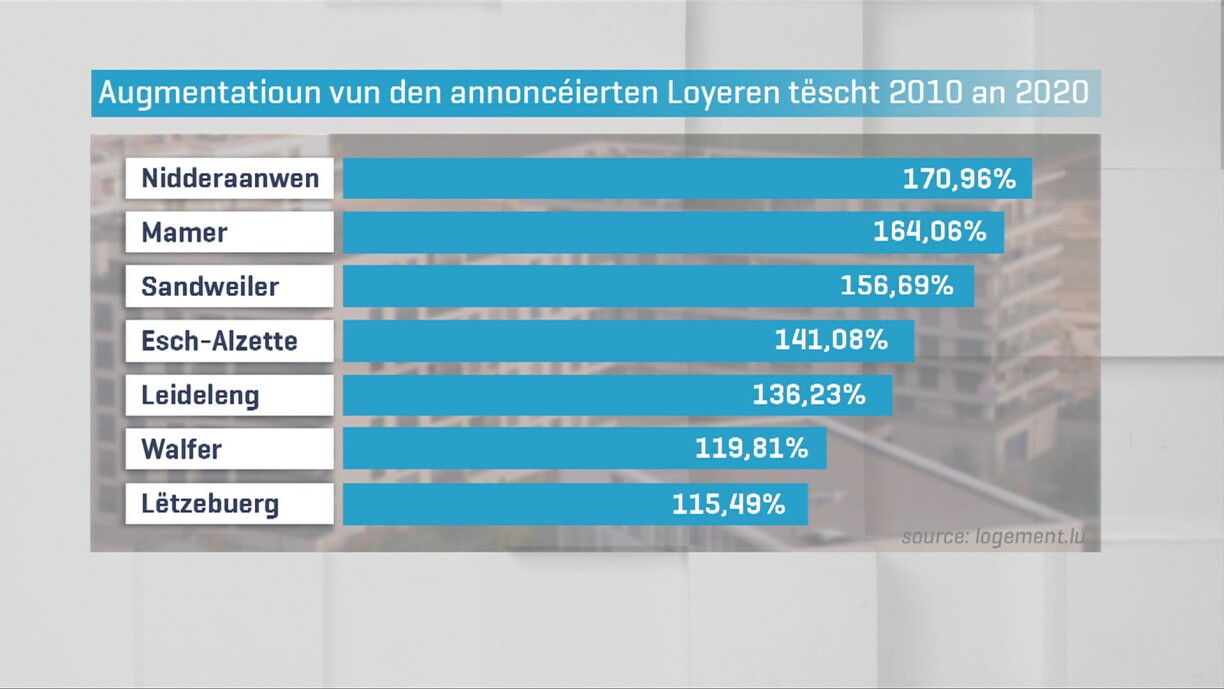
Part of the underlying dynamic can be explained by the increase in mortgage interest rates offered by banks, which have continuously risen over the past six months.
This has made people less prone - or able - to buy a property, as getting a mortgage has become both more difficult and the monthly cost of maintaining a mortgage more expensive. With fewer people able to buy a property, demand for rental units has subsequently increased.
The rise in rental cost is not a phenomenon limited to the current period of higher interest rates, however. Data from the Housing Observatory shows that the relative rental increase of a property is affected by its location, with properties in Niederanven seeing announced rents increasing by over 170% in the decade spanning 2010-2020, while Luxembourg City’s rental prices increased by just over 115%.
Looking at more recent price developments, announced rents increased by some 4.7% between the third quarter of 2021 and that of 2022. For a rental property offered at €1500 per month in 2021, that means an additional €75 per month or €900 per year.

At the beginning of October, the Ministry for Housing announced a reform of the rent laws. The extant laws, which introduced a rental cap, date back to 1955 and were last reformed in 2006. The cap was put in place to ensure that landlords cannot ask for excessive rents, with the limit being set at 5% of capital invested - though this is based on an evaluated sum, making it slightly more complex than a straight 5% of the cost of buying a property.
The new draft law is set to amend the extant laws in a number of ways, including a reform to the current rental cap. It has, however, received criticism: Fabio Sprinielli of the “Mieterschutz” tenants’ protection association accused the Ministry of ‘contradicting itself', not least as the coefficient used in calculating the cap was increased - leading to potentially higher rents.
This point was also fact checked by RTL, during the process of which it was found that the maximum rent chargeable for some properties would see a near threefold increase. This also drew criticism from LSAP (Luxembourg’s socialist workers party, part of the current governing coalition), with party co-president Francine Closener noting that the potential increase in rents for older properties in particular does not bode well for tenants.
Mike Mathias, first councillor at the Ministry for Housing, reacted to the criticism by stating that predictions of excessive rents as a result of the changed cap are unfounded, as “a cap on rents designed to determine whether rents are excessive has not contributed to rents being higher than they could be, and will not do so in the future.” This refers to the fact that the extant cap has, according to Mathias, not had undue or unforeseen impacts on the rental market.
In continuing his response to the criticism, Mathias stated that the cap is not designed to reduce rents, “because that is the major balancing act necessary with a regulation of rents. It should not risk drying out the housing market as that would raise the amount of difficulties faced by tenants.”
The draft law intends to regulate that all rental agreements must be made in written form and contain certain points. In essence, this means that landlords will have to list their assessment of the reevaluated sum of capital invested in their property. This evaluation and its potential impact on rental ceilings is explained in more detail here.
This process is easy in some cases, and more difficult in others. Long-term owners may have to pay an expert to value the invested capital, as the sum plays an important role in the Rent Commission, and may be crucial for any rent dispute brought in front of a judge. In the future, two sentences are to be written in every rental agreement, stating the cap is being respected and that both parties have the option of contacting the Rent Commission.
Mike Mathias further explained that in his view, the cap is not something that is imposed on owners or tenants, and that a rental agreement is first and foremost something that is negotiated between landlord and tenant, signed by both parties at an agreed rental rate.
The price, argues Mathias, depends on the market forces of supply and demand: “If a tenant later believes that a rent is too high, then they can go to the Rent Commission. And then the 1995 rule comes into play, by which the Rent Commission or a peace magistrate can decide whether something has become excessive.”
Further reading: Rent reform draft bill is ‘disastrous’, says Sven Clement